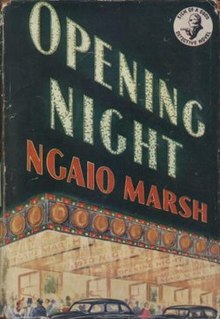Shaun Bythell, George Orwell, and a whole host of politicians – it’s episode 79!
 We have a special guest for this episode – my very good friend Lorna, who was meeting Rachel for the first time. We recorded in person in Rachel’s flat, bunched along the sofa. It was really fun – and since Lorna is a broadcast journalist, I feel like we’ve elevated ourselves…
We have a special guest for this episode – my very good friend Lorna, who was meeting Rachel for the first time. We recorded in person in Rachel’s flat, bunched along the sofa. It was really fun – and since Lorna is a broadcast journalist, I feel like we’ve elevated ourselves…
In the first half we talk about political books, both fact and fiction. In the second half we compare two works on running bookshops – Shaun Bythell’s The Diary of a Bookseller and a short essay by George Orwell called ‘Bookshop Memories’.
If you’d like to support the podcast through Patreon, you can! And here we are on Apple Podcasts and you can find us on Spotify too – any reviews or ratings much appreciated. Do get in touch at teaorbooks@gmail.com with any questions or suggestions.
Here are the books and authors we mention in this episode:
Whose Body? by Dorothy L Sayers
Gaudy Night by Dorothy L Sayers
Drive Your Plow Over the Bones of the Dead by Olga Tokarczuk
The Quest for Christa T by Christa Wolf
The Tiger Who Came To Tea by Judith Kerr
When Hitler Stole Pink Rabbit by Judith Kerr
The Past is Myself by Christabel Bielenberg
Goethe
Theft By Finding by David Sedaris
Dress Your Family in Corduroy and Denim by David Sedaris
Becoming by Michelle Obama
Dreams From My Father by Barack Obama
The Audacity of Hope by Barack Obama
Just Mercy by Bryan Stevenson
Why I’m No Longer Speaking To White People About Race by Reni Eddo-Lodge
Between The World And Me by Ta-Nehisi Coates
Small Island by Andrea Levy
The Island by Victoria Hislop
Unleashing Demons by Craig Oliver
Georgiana, Duchess of Devonshire by Amanda Foreman
The Years of Lyndon Johnson by Robert Caro
Tory Heaven by Marghanita Laski
Love on the Supertax by Marghanita Laski
Love on the Dole by Walter Greenwood
Coningsby by Benjamin Disraeli
Sybil by Benjamin Disraeli
Walter Scott
Charles Dickens
Emile Zola
George Eliot
Middle England by Jonathan Coe
Ian McEwan
Autumn by Ali Smith
Palliser Novels by Anthony Trollope
The Rotters Club by Jonathan Coe
Holy Deadlock by A.P. Herbert
Middlemarch by George Eliot
The Semi-Detached House by Emily Eden
The Semi-Attached Couple by Emily Eden
Head of State by Andrew Marr
Mrs Harris, MP by Paul Gallico
Flowers For Mrs Harris by Paul Gallico
Confessions of a Bookseller by Shaun Bythell
E.M. Delafield
Old Books, Rare Friends by Leona Rostenberg and Madeleine Stern
Homage to Catalonia by George Orwell
4.50 From Paddington by Agatha Christie













